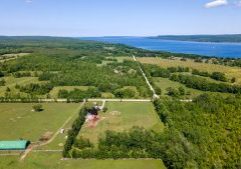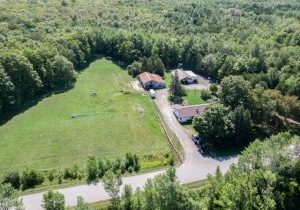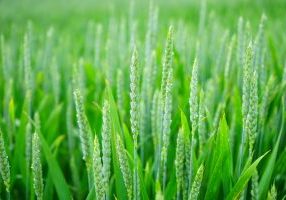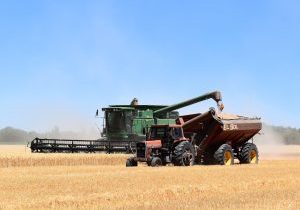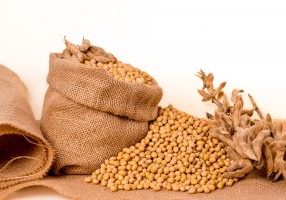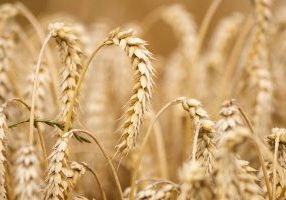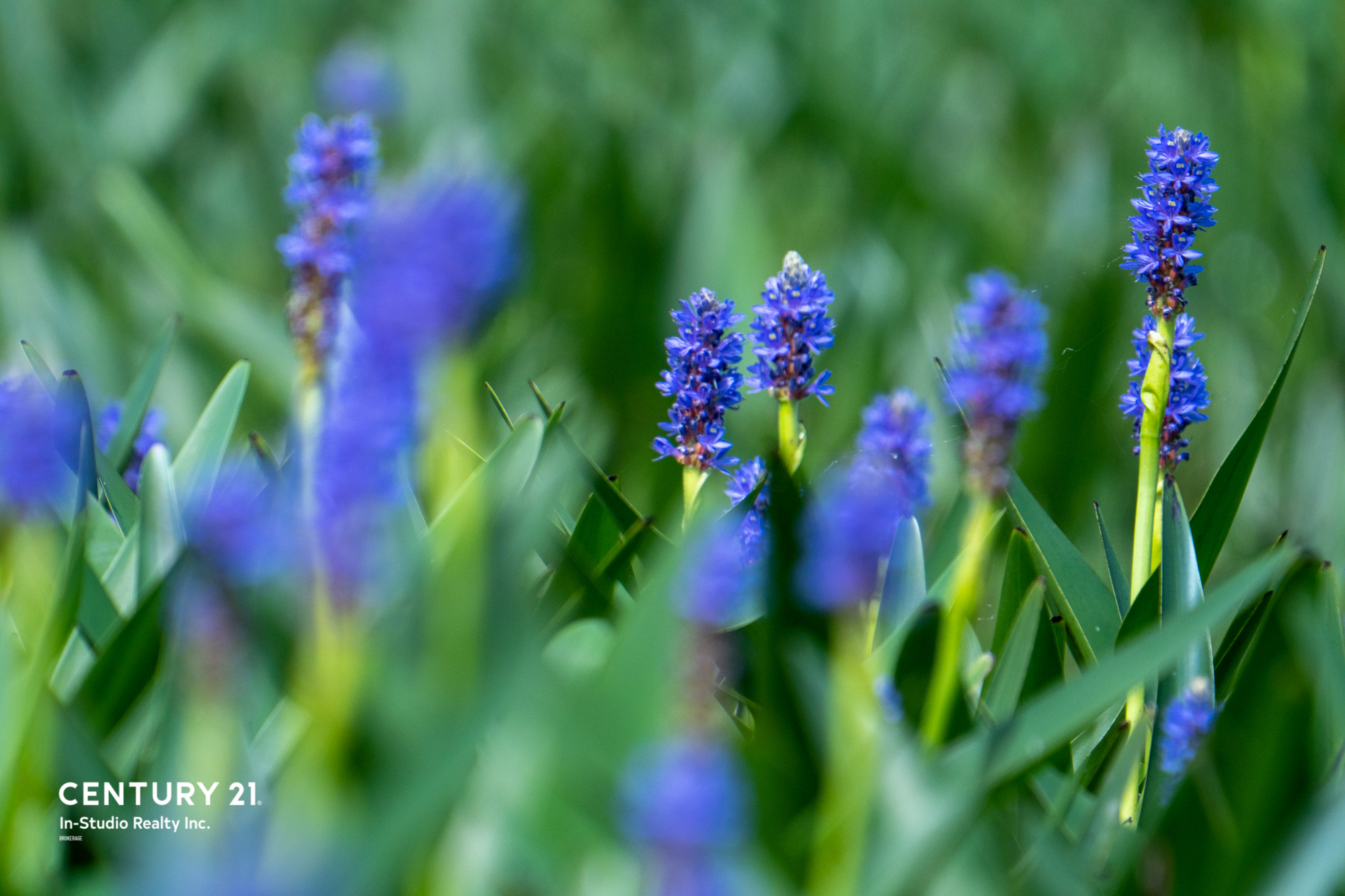Buy Fresh. Support Local. Thank You!
Considering farms for sale in Muskoka Haliburton? The Muskoka Haliburton region is located in central Ontario, just two hours north of Toronto. It is home to over 8,000 bodies of water, the most notable of which is Georgian Bay. Together, both counties span a combined area of over 8,000 km2 and have a combined population of nearly 80,000. Muskoka is prime cottage country and receives almost 2 million visitors every year, contributing considerably to the local economy. Conservation is a high priority for the region, with efforts being made to preserve and sustain the region for future generations to access the abundance of natural resources that Muskoka Haliburton offers.
There are particular challenges to farming in the Muskoka Haliburton region, including soil quality, a shorter growing season, operating farm quantity, and a drive to reach self-sufficiency. Despite these challenges, there is a long history of agriculture and many current opportunities to diversify and support the industry. Due to the significant tourism in the region, the agricultural sector sees substantial profits from agri-tourism. In addition, there are many opportunities for connections between local farmers and consumers through farmers' markets and food boxes with fresh produce from the area. Recently, there has been a population increase in year-round residents, some of which have started agriculture-related ventures as either a producer or by operating a small-scale farm under 10 acres. The proximity to Toronto and the GTA allows for many opportunities for employees, sales, and resources to help maintain and get a farm up and running.
Ready to purchase your next Muskoka Haliburton Farm? Contact The Ontario Farms & Land Group today! 1-844-721-FARMS
Find Your Dream Farm For Sale In Muskoka Haliburton
Local Muskoka Haliburton REALTORS® Specializing In Farms & Land
Coming Soon
Local Resources in Muskoka & Haliburton
Farmers Markets
Supporting local farmers is a significant initiative throughout the Muskoka Haliburton region. Eat Local Muskoka connects eight local, small-scale farmers directly to consumers through seasonal boxes with the freshest, homegrown produce in the area. Additionally, Harvest Haliburton supports the local agriculture sector by providing a food directory for produce and restaurants that incorporate locally grown food on their menu. Check out the farmers' markets in the Muskoka Haliburton area for some examples of year-round and seasonal farmers' markets below:
- Haliburton County Farmers' Market, Haliburton
- Gravenhurst Farmers’ Market, Gravenhurst
- Port Carling Farmers' Market, Port Carling
- Bala Farmers’ Market, Bala
Veterinary Clinics & Hospitals
The Muskoka Haliburton region offers many resources for veterinary care, including clinics and hospitals with emergency care. Whether you have big or small animals, they will be well taken care of in the region! See below for a list of the larger veterinary clinics and hospitals in the area:
- Muskoka Animal Hospital, Huntsville
- Penetang Vet Hospital, Penetanguishene
- Haliburton Veterinary Services, Haliburton
- Lake Country Animal Hospital, Severn
Agriculture Supply Shops
The Muskoka Haliburton region has access to many small businesses that service the region and proximity to larger city amenities to set your farm up for success! Whether you're looking for feed suppliers, tools, heavy-duty farm equipment, or service, you'll find it here. See below for a few great shops to get you started:
- The Donkey's Shack & Feed Store, Gravenhurst
- Bear's Farm Supply, Coldwater
- Haliburton Feed & Seed, Dusart et al
- Minden Mercantile & Feed Company, Minden
Auctions
Are you looking for heavy-duty machinery, estate sales, home supplies, farm equipment, tools, and vehicles? You'll be able to find a good deal on what you need in the Muskoka Haliburton region, online or in-person. If you require an appraisal, most auctions also provide these services. Many auctions are available in neighbouring counties as well, which specialize in farming and rural auctions. See the list below to check out a few of the auctions in the region:
- Mitchell Auctions, Omemee
- Canadian Industrial & Farm Auctions, Elmvale
Urban Centers
Huntsville
Huntsville is the largest city in Muskoka, with a population of nearly 20,000. It is located 2 hours north of Toronto and is a hilly area with accessibility to various nearby lakes.
Transportation & Logistics
Transportation
- Muskoka Transit
- Corridor 11 Bus connecting Huntsville to Orillia, Rural and Community Connection Bus, connecting east and west communities within Muskoka
- Huntsville to Toronto – 233 km
- Haliburton to Toronto – 215 km
Logistics
- Proximity to GTA and Toronto
Muskoka Haliburton Farming
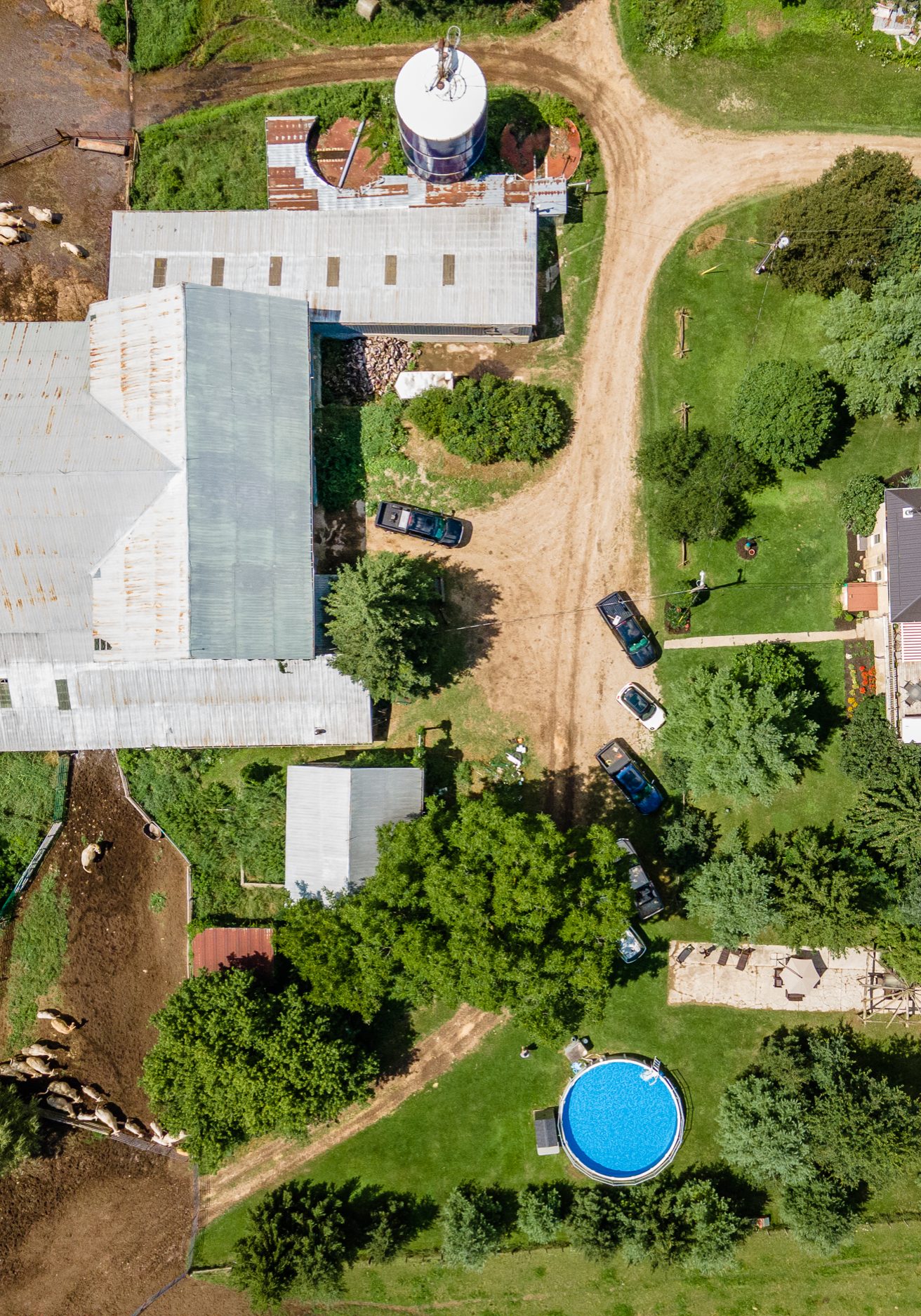
Muskoka is home to 162 farms producing primarily livestock, namely chickens, cattle, and horses, with cash receipts over $3.2 million in 2016. Agriculture in the Muskoka region has diversified with the opportunities of agri-tourism in the sought-after landscape of cottage country. Wineries that host samplings and tours are one form of agri-tourism that is incredibly popular during the seasonal tourist shift, where the population of Muskoka doubles over the summer months. The majority of the region still fosters mainly small-scale farms. There are many supports to continue sustaining and diversifying these farm operations for future generations. One such way is to enable more production facilities and opportunities, including butchering and packaging livestock and creating cheese or jams. Diversifying the agriculture sector to include production facilities allows the region to be more self-sufficient while supporting the local agriculture market and simultaneously growing.
The agriculture sector in Haliburton reports 59 farms in operation, with 23 producing crops and animals. The region is responsible for employing an additional 30 people between all farms. However, there is an increase of small-scale farming within the region, including farms with less than 10 acres and farms with 760 – 1,119 acres. The primary agriculture in Haliburton County is cattle, which has seen an increase from 2011 to 2016 of 444 to 923 cattle, respectively. Additionally, the region has seen increases in hens and chickens, beekeeping, and major field crops in the same period. There have been decreases in farming categories such as fruit and tree nuts, turkeys, sheep, lambs, and goats. The region has also maintained a steady maple syrup production and vegetable production.
The Muskoka Federation of Agriculture and the Kawartha Lakes Haliburton Federation of Agriculture represent farmer families' interests and opinions throughout the Muskoka Haliburton Region. As a member of the Ontario Federation of Agriculture, both organizations work to improve the agricultural sector for local needs and improve agriculture across the province of Ontario.
Conservation is a high priority for the region, with many wildlife reserves and conservation areas. The Muskoka Conservancy is a natural reserve spanning over 3,000 acres of land throughout Muskoka, most of which is close to various lakes. Sustainability is fostered through community partners and landowners alike, with multiple programs available to visitors and residents. Additionally, many organizations promote sustainable agriculture through a variety of resources. Two of these organizations include Harvest Haliburton and Climate Action Muskoka, focusing on accessible and sustainable initiatives, including seed libraries and economic and sustainable development.
Soil
The terrain in the Muskoka Haliburton region is breathtaking but not the most fertile for agricultural purposes. This is due primarily to the area being located on the Canadian shield, which is a thin layer of soil over large rock formations. There are pockets of soils in classes 2, 3, 4, and 7 with organic soils found throughout both counties, which can challenge local farmers.
Weather
The weather in the Muskoka Haliburton region is comfortable, with winter temperatures averaging around -15°C and rarely getting colder than -26°C. Summer temperatures average approximately 25°C, rarely surpassing 29°C. The average rainfall for the area ranges between 8 mm to 56 mm month over month, with an average snowfall of 179 mm in December. The longest days have roughly 15 hours 37 minutes of sunshine, with the shortest days having just 8 hours and 46 minutes of daylight in the winter.
There are an estimated 4.2 months of the growing season from May 21 – September 27 annually.
Water & Air
Water in the Muskoka Haliburton region is sourced from the various lakes, rivers, and bays found throughout. These water sources are heavily protected regionally and provincially as valued resources. It is managed either privately through wells or through the municipalities.
The air quality in the Muskoka Haliburton region is rated as fair. Those who have sensitivities may experience slight symptoms as a result.
Animals & Insects
Wildlife found in the Muskoka Haliburton area includes various frogs and toads, snakes and turtles, as well as birds like grouse, wild turkeys, osprey, and woodpeckers. Additionally, animals like black bears, river otters, lynx, and foxes are commonplace. Fish found in the various lakes include trout, pike, and bass, and it is considered one of the best fishing spots in Ontario.
Read Our Latest Blogs
Discover Neighbour Farming Communities to Hastings & Prince Edward
ONTARIO FARMING COMMUNITY PAGES
On our community pages, you'll find a wide variety of local information and resources.

